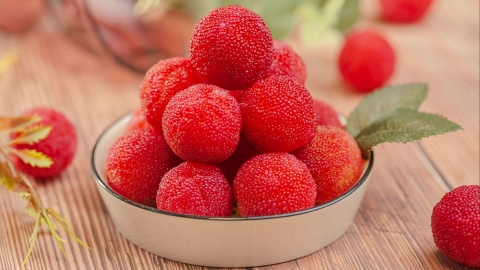Can I take medicine for rhinitis after eating Chinese bayberries (Myrica rubra)?
Generally, whether one can take rhinitis medication after consuming Chinese bayberry (Myrica rubra) depends on the type of rhinitis medication. The specific situations are as follows:

If there are no known interactions between the selected rhinitis medication and Chinese bayberry—for example, with common antihistamines such as loratadine—and the drug's instructions or a physician have not specifically indicated that the medication should be taken on an empty stomach or with food, they generally can be consumed together. Chinese bayberry is a common fruit, and moderate consumption is beneficial to the body.
However, if the rhinitis medication being taken interacts with components in Chinese bayberry—for example, tetracycline antibiotics—it is not recommended to consume Chinese bayberry at the same time, to avoid affecting drug efficacy or causing adverse reactions. For individuals with gastric ulcers or gastroesophageal reflux disease (GERD), excessive consumption of Chinese bayberry may irritate the gastrointestinal tract. Some individuals may be allergic to Chinese bayberry, and in such cases, consumption should be avoided to prevent allergic reactions.
In daily life, after taking medication, if one intends to consume other foods, it is advisable to refer to the drug's instructions to understand potential interactions and avoid adverse reactions.








